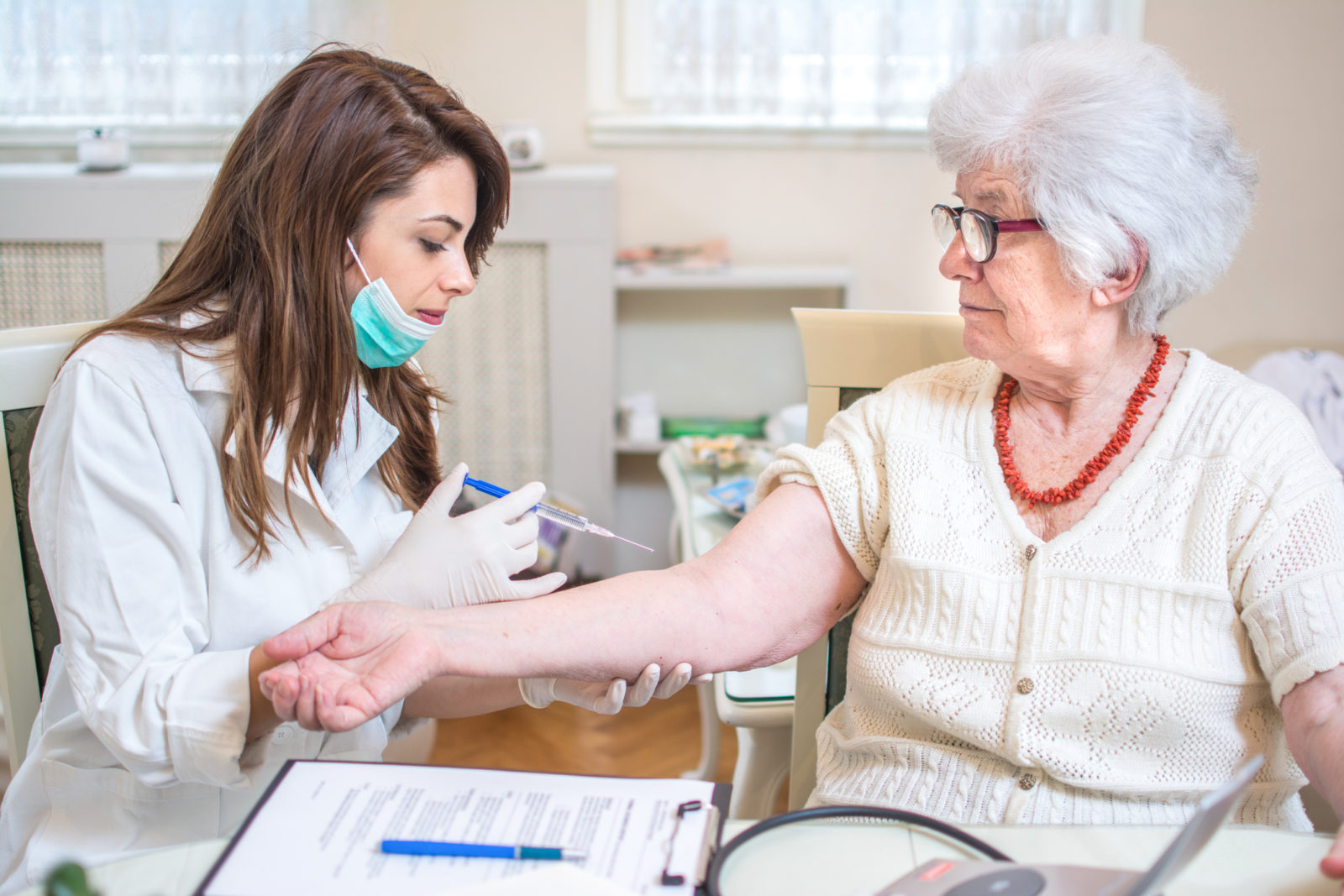The Essential Guide to Vaccinations for Seniors

August is National Immunization Awareness Month. Research tells us that many seniors aren’t getting the vaccinations they should and yet, they are one of the age groups where vaccines are most important. As we age, our immune systems tend to become weaker. Vaccines help to fill the gap by proving added protection against certain diseases.
All told, an estimated 45,000 adults die each year from diseases that vaccines can prevent. Many seniors may feel they no longer need vaccinations or they may worry about side effects. Here are the vaccinations the Centers for Disease Control and Prevention (CDC) recommend for adults age 65 and older:
Seasonal Flu
We’re all familiar with the annual flu shot. It’s the single best way to prevent the flu. Vaccination is particularly important for those over the age of 65, as they are at greater risk for complications. According to the CDC, up to 85 percent of seasonal flu-related deaths and 70 percent of seasonal flu-related hospitalizations are for people 65 and older. And while the flu vaccine isn’t 100 percent effective, it generally cuts your risk by 40 to 60 percent. To improve your odds, aks your doctor about getting one of the vaccines designed to offer greater protection, such as the Fluzone High-Dose vaccine. A study in the New England Journal of Medicine found that the high-dose vaccine was 24.2 percent more effective in preventing the flu for this age group. Flublok Quadrivalent also showed greater protection for seniors. Another study published in NEJM found that people age 50 and older who received the Flublok vaccine were 30 percent less likely to get the flu than those who received the standard vaccine. Ask your doctor if one of the high-dose vaccines is right for you.
Pneumococcal Disease
Pneumococcal disease may manifest as pneumonia, bacteremia (blood infection) or meningitis, among other ailments, with pneumonia being the most common. Pneumococcal disease kills about 18,000 adults aged 65 and older each year. For this age group, two separate vaccines are recommended. You should get one dose of the PCV13 vaccine and then schedule another appointment to get the PCV23 vaccine. They should not be taken together. Your doctor can tell you when to get your PCV23 shot.
Shingles
Shingles is an extremely painful, burning rash that can have long-lasting, debilitating effects. People age 50 and older are advised to get the new vaccine, Shingrix. While Shingrix may not completely prevent shingles, it appears to be more effective than its predecessor, Zostavax and the CDC recommends Shingrix because it offers stronger, longer-lasting protection. Shingrix is a two-dose vaccine and tends to have stronger side effects than Zostravax, although they usually disappear in 2-3 days.
Tetanus/Diphtheria
You should continue to get a tetanus/diphtheria (Td) vaccine every ten years. Ask your doctor if he or she recommends getting vaccinated for pertussis (whooping cough) as well. The pertussis vaccination may be recommended if you will come into contact with infants who are too young to be vaccinated against the disease. The good news, either way it comes in a single shot (Td or Tdap).
As with any medical procedure, always check with your physician before getting a vaccination. In addition to getting vaccinations on a regular basis, you should talk to your doctor about other ways to prevent disease, including eating well, an exercise program and other ways to boost the immune system.
![LifeCare Advocates [logo]](https://www.lcadvocates.com/wp-content/uploads/sites/270/2017/11/logo.png)